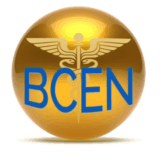Additional Benefits of Professional Editing
- Additional Benefits of Professional Editing
- Cognitive development
- Improved learning ability
- Improved critical thinking
- Improved analytic and synthetic reasoning
- Facilitated reflection
- Affective development
- Empowerment and self-efficacy
- Decreased Anxiety and Depression
- Improved Communicative Competence
- Transformative Learning and Metanoic Transformation
The component activities of scientific writing develop several abilities that are essential for nurses and nurse leaders: critical thinking, comprehension and learning ability, analysis and synthetic reasoning, and communicative competence. At a deeper level, scientific writing can lead to metanoic transformation—an expansion and refinement of our awareness of our environment. Working with an editor who specializes in scientific writing can accelerate the development of these abilities and this transformation.
← For more information, click on any of the tabs to the left.
Cognitive Development
Among the broad range of academic activities, the act of scientific writing uniquely exercises and integrates multiple cognitive capacities and skills—including intelligence and learning ability, analytic and synthetic reasoning, critical thinking, research and information gathering, reflection, expression, and collaboration. The development of these capacities and skills can be deepened and accelerated by the thoughtful exchanges that occur between authors and trained editors. Indeed, furthering clients’ cognitive development by serving as an inquisitive sounding board is one of editors’ most important roles.
Improved Learning Ability
Learning involves the use of multiple competencies—including, for example, comprehension, organization of information, concentration and memory, interpretation and evaluation, analysis and synthesis, and application—that are exercised during the process of scientific writing. As an essential aspect of scientific writing, editing in the context of author–editor collaboration refines these competencies and strengthens cognitive learning ability in general.
Improved Critical Thinking
Critical thinking is one of the most commonly cited cognitive skills in nurses’ competency armamentarium. Among the various aspects of critical thinking, the language used to express one’s thinking is central. Indeed, the formality of the language of nursing science and health care has one ultimate objective: facilitating nurses’ critical thinking in their roles as clinicians, scholars, researchers, and nurse leaders. Toward this end, the act of scientific writing—and the editing that refines scientific written discourse—is the single most powerful academic method available for developing nurses’ critical thinking abilities.
Improved Analytic and Synthetic Reasoning
The nursing sciences advance through multiple cognitive activities, including the complementary activities of analysis and synthesis. In this regard, analysis entails examination of systems to understand their components; synthesis entails an examination of interrelationships between system components to improve understanding of the systems themselves. Higher order editing will further your analytical thinking by illuminating your examination of the constituents of your written discussion. Higher order editing will further your synthetical thinking by illuminating your examination of the relationships—in particular, synergistic relationships—between the components of your written discussion.
Facilitated Reflection
Advanced editing helps authors to use reflection* and other metacognitive strategies* to clarify their thought processes in writing. In my editing work with nurses, this improved understanding leads to clearer, deeper understanding of subject matter and to visible improvement of written content.
* Reflection and other metacognitive strategies are techniques used to improve one’s understanding of one’s own thought processes. For nurses, “thought processes” refers to thinking done in the context of care delivery, research, and formal writing.
Affective Development
As with cognitive development, affective development can occur at all stages of life, from childhood through adulthood. Indeed, some research has suggested that as a determinant of achievement and fulfilment in life, affective development may be more significant than cognitive development. For authors, writing and editing can promote affective development by both increasing positive emotional function (e.g., empowerment and self-efficacy) and decreasing negative emotional function (e.g., anxiety, depression, and anger).
Empowerment and Self-efficacy
For nurse–authors, expert editing and mentoring yield important affective benefits that promote greater achievement in life. Specifically, nurses find that improving their scientific writing proficiency increases self-confidence, self-efficacy, and personal empowerment. Furthermore, these affective developments improve numerous other dimensions of professional and personal competence.
Decreased Anxiety and Depression
As with any great learning event, academic writing should be experienced as a challenge that culminates in a sense of achievement, personal growth, and fulfillment. The act of writing should not produce anxiety, dread, or depression. If, for an author, the thought of writing is associated with unpleasantness, this association is most often the result of insufficient training in formal writing. To ensure that your experience of writing will be positive—and to preclude negative experience—collaboration with a trained editor can be invaluable. As a skilled, supportive guide in the writing process, an editor can help you stay on track, to overcome barriers, and to give effective, compelling expression to the knowledge and expertise that you possess as a scholar, researcher, or nurse leader.
Improved Communicative Competence
Many of my clients have commented that our writing–editing collaboration has improved the clarity and effectiveness of both their written and oral communication. Furthermore, these improvements have benefited the authors both professionally and personally. For these nurses, the benefits of their improved formal communication have included better communication with colleagues and patients at the bedside and greater effectiveness as nurse leaders.
Transformative Learning and Metanoic Transformation
Many of my clients have reported that with editorial guidance, the process of scientific writing becomes transformative, “life-changing”—and deeply satisfying. This transformation can occur in multiple ways and on multiple levels. The most profound level of personal transformation is metanoic transformation. Metanoic transformation refers to advance in personal development that is accompanied by an actualization of one’s inner potential—cognitively, affectively, and behaviorally. The benefits of metanoic transformation are far-reaching. For nurses, metanoic transformation is akin to a nurse’s development from novice to expert, in which intuition plays a strong role in decision making and “performance becomes fluid, flexible, and highly-proficient” (Benner, 1984, p. 34, citing Dreyfus and Dreyfus). In the act of scientific writing, metanoic transformation is promoted through the process of reflection.
